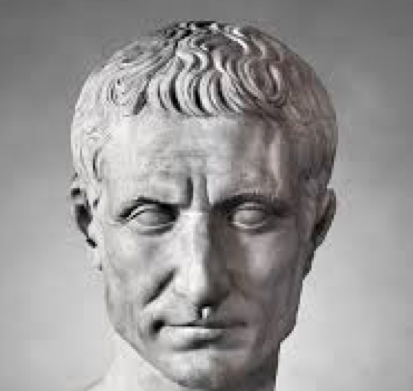whitecoast said:Thank you for this translation Oxajil! It certainly is a picture of Caesar distinct from the common depictions of him by Cicero and the like. The more I read about him the more I can't help admire him.
Yes, ditto, thank you for this, Oxaji.
After reading what Laura wrote on SoTT today and once more thinking of the likes of Caesar, the world seems to have been left wanting for people of his like, and that like only really concluded in being falsely immortalized in the guise of another; a biblical equivalency. Yet today, with few exceptions, none have stepped forward like Caesar, and of those that do, like Caesar, they are vilified all the more for their being.
Going back to a session held awhile back, Caesar had this to say in response to a question of advice:
Q: (Atriedes) If you could give 3 pieces of advice to the world, what would they be?
A: I was wrong to think I could change the masses by example. Humans are fickle and self-centered for the most part. Thus, if you wish to really effect changes, it can only be done by early education, and even then it is fragile and will not last. In the end you must be true to your own nature and fear nothing. If you do that you may make a difference after you are gone. That is not exactly what you are looking for, but there are no 3 pieces of advice that serve all events.
He may have been wrong to think he could change those who would not and could not see, yet he tried, he aspired to a moral foundation that considered all being represented as one embarking on a new path. When the daggers came out though, their points where as sharp then as the lies that face people like Putin today, and the lies today are even more deadly if one considers the gaping wounds of humanities global abject poverty, along with unfettered greed and war that has resulted. So as Caesar laments, there seems no end to this "fickle" humanity that can be seen on the horizon.
From Laura's article above: said:Oh, indeed, Vladimir Putin has tossed a monkey wrench into the works of the Global Elite's drive for full-spectrum dominance, but the last person who did that from within what could be called an equivalent empire was Julius Caesar, and look what happened to him.
Indeed, that is so. Nonetheless, I'm heartened that people have at least now had a new lens put on Caesar that corrects the specious words of others; like what you said whithecoast, of people like Cicero. And so, as Caesar was saying, he does "make a difference" for some well after he departed.


